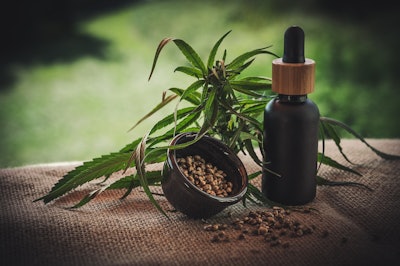
Adapted from a press release
As negotiations for the next U.S. Farm Bill commence following the new year, a united hemp industry, comprised of 33 non-profit organizations representing every facet of the supply chain, has come together in an effort to advocate for the inclusion of seven critical objectives.
Summarized with clear legislative language, these objectives aim to create more jobs while providing much-needed regulatory direction for farmers. Specifically, the industry urges Congress to:
- Regulate CBD and other ingredients derived from hemp under the existing frameworks for dietary supplement and food additives as outlined in HR 1629 and S 2451.
- Address the shortage of testing laboratories and protect consumers by allowing USDA and ISO 17025 accredited laboratories to test hemp products. See proposal here.
- Reduce regulatory requirements for hemp grain and fiber farmers via HR 3755 or S 980, and/or through a fit-for-purpose approach as outlined here.
- Permit hemp grain for animal feed. See proposal here.
- Maintain the current definition of “hemp” while balancing appropriate consumer protections with continued market access to popular hemp products.
- Promote justice, equity and the planet by repealing the felon ban in HR 1428, supporting hemp research at minority serving institutions, and enhancing climate opportunities through carbon credit programs.
- Mandate that hemp crops should be deemed compliant unless they exceed 1% total THC, as defined by USDA. See proposal here.
This is the first time hemp industry leaders have joined together in alignment on a strategic legislative agenda. Last year, the effort was initiated and led by the Hemp Industries Association (HIA), the National Industrial Hemp Council (NIHC) and the U.S. Hemp Roundtable (USHR), resulting in a foundational slate of policy priorities announced in April 2023. Following ongoing negotiations and feedback from stakeholders, these priorities were refined and improved into the seven objectives above. See a one-page summary here.
Farm Bills have historically played a vital role in shaping hemp policy. Just as the 2014 Farm Bill established hemp pilot programs, and the 2018 Farm Bill permanently legalized hemp, the impending version could prove monumental for farmers and businesses. Endorsers express optimism for the possible outcomes.
“With the Farm Bill delayed, possibly beyond the upcoming presidential election, we have an extended window to build upon the substantial strides made this year," said Jonathan Miller, U.S. Hemp Roundtable general counsel. "We will seize this window of opportunity to ensure that the final package reflects and prioritizes the key objectives crucial to the growth and sustainability of the hemp industry."
The hemp industry has faced continuous challenges in establishing a stable foundation since the full federal legalization of hemp brought about by the 2018 Farm Bill, said Morris Beegle, president of WAFBA – We Are For Better Alternatives.
"The absence of regulatory clarity from the FDA along with the pandemic, has resulted in the elimination of thousands of operators and companies, causing the emerging industry to suffer billions of dollars in lost revenues and investment," said Beegle. "Nevertheless, there is optimism due to the strong willingness of key industry stakeholders across the supply chain and various product categories to collaborate on common-sense policy initiatives. The goal is to provide farmers, processors, manufacturers and ancillary businesses with a clear pathway and understanding, fostering an environment that allows the hemp industry to thrive and prosper."

















